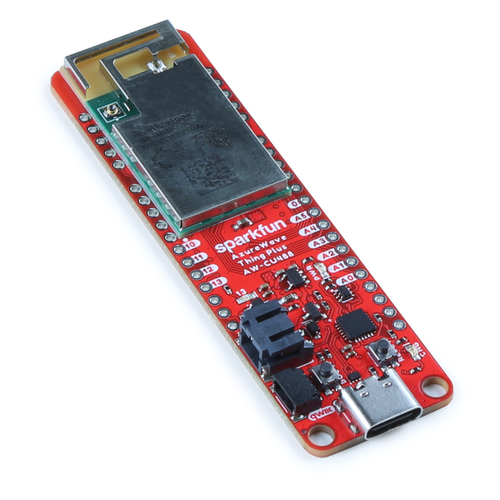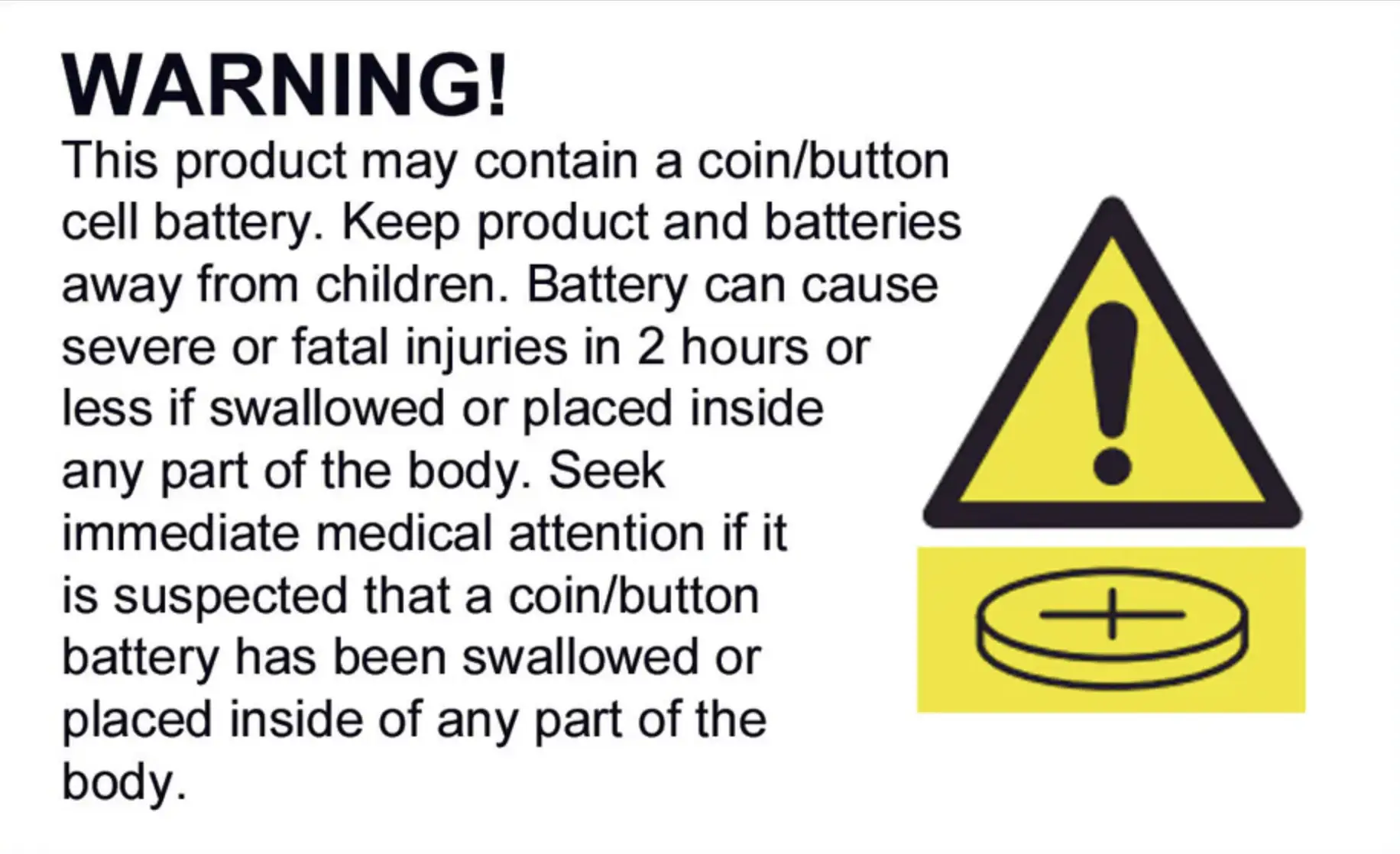
SparkFun AzureWave Thing Plus - AW-CU488
178 units available with a short lead time.
The SparkFun AzureWave Thing Plus is a Feather form-factor development board equipped with the AW-CU488. The module features the Realtek RTL8721DM integrated single-chip low-power dual-band (2.4GHz and 5GHz) wireless LAN communication controller. It also consists of a dual processor core: Real-M300 CPU (ARMv8-M, Cortex-M33) and Real-M200 CPU (ARMv8-M, Cortex-M23). Connect the SparkFun AzureWave Thing Plus to the cloud to grab current weather conditions in your area, post sensor data to a server, control the lights in your next home automation project, or even calculate the Fast Fourier Transform (FFT) of an input audio signal!
Why the name? We lovingly call it the “Thing” because it's perfect for your Internet of Things project. The Thing does everything from turning on an LED to posting data with your chosen platform and can be programmed just like any microcontroller. You can even program the Thing through the Arduino IDE by installing the Realtek Arduino core.
The board includes a USB-C connector for programming and power. Two buttons for reset and boot are also populated on the board. For those that need to go remote with their application, the board includes a 2-pin JST connector and the MCP73831 single cell, LiPo charge IC (set to a default rate of 500mA). Voltage is regulated down for the AW-CU488 with the XC6222 3.3V/700mA voltage regulator. Three status LEDs are available for power, charging, and status. Due to the size of the module, the board is slightly longer than the standard Thing Plus footprint. With the added length, we were able to break out a few more PTHs on the edge of the board for a total of 30 GPIO pins (30 Interrupts, seven Analog, 11 PWM, two UARTs, two SPI, and a single I2C). The board also includes a built-in audio CODEC with two channel analog inputs and outputs at various sample rates (8/12/16/24/32/48/.../176.4 kHz). On the back of the board are five jumpers for the LiPo charge rate, LED, auto boot circuit, and USB shielding. Finally, one Qwiic connector is populated on the board to easily add Qwiic-enabled I2C devices to your projects!
Note: Additional items found in our photos are not included with the SparkFun AzureWave Thing Plus. You will need to purchase these components separately. Check the Hookup Accessories section below for options.
The SparkFun Qwiic Connect System is an ecosystem of I2C sensors, actuators, shields and cables that make prototyping faster and less prone to error. All Qwiic-enabled boards use a common 1mm pitch, 4-pin JST connector. This reduces the amount of required PCB space, and polarized connections mean you can’t hook it up wrong.
Features:
- AzureWave AW-CU488 Module
- up to 200MHz operating frequency
- 512KB SRAM and 4MB PSRAM
- 32Mbit SPI Flash
- Realtek RTL8721DM Dual Processor Core
- Real-M300 CPU (Armv8-M, Cortex-M33)
- Real-M200 CPU (Armv8-M, Cortex-M23)
- 2.4GHz/5GHz WiFi 802.11a/b/g/n 1T1R WLAN
- Built-in Antenna w/ Internal Shielding Antenna
- 2-Channel Audio CODEC (8/12/16/24/32/48/.../176.4 KHz)
- Thing Plus (or Feather) Form-Factor
- Breadboard-compatible 0.1" (2.54 mm) pitch headers
- Dimensions: 3.05" x 0.90" (77.47 mm x 22.86 mm)
- 30x Available GPIO
- Up to 30x INT
- Up to 7x 12-bit ADC
- Up to 11x PWM
- Up to 2x UARTs
- Up to 2x SPI
- Up to 1x I2C
- Two Mounting Holes
- 4-40 screw compatible
- 38x PTH Pins
- 1x USB Type C Connector
- 1x 2-pin JST Connector for a LiPo Battery (not included)
- 1x 4-pin Qwiic Connector
- CP210X USB-to-Serial Converter
- MCP73831 Single Cell, LiPo Charge IC
- Charge Rate Set to 500mA (default)
- Buttons
- Boot
- Reset
- LEDs
- Power
- Charge
- Status
- Jumpers
- Power LED
- LiPo Charge Rate (500mA/100mA)
- Auto Reset Circuit
- USB Shielding
Documents:
- Schematic
- Eagle Files
- Board Dimensions
- Hookup Guide
- Fritzing Part
- Graphical Datasheet
- Datasheets
- Qwiic Info Page
- Compare Thing Plus Boards
- Board Support Files
- GitHub Hardware Repo
Videos
The SparkFun AzureWave Thing Plus - AW-CU488 appears in the following collections:

